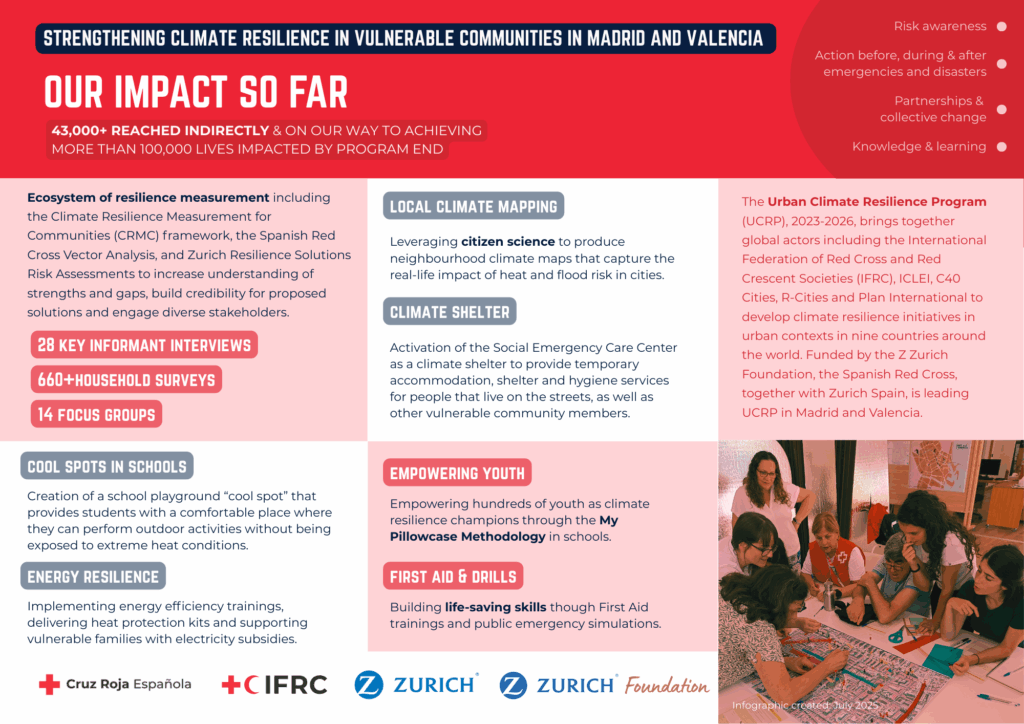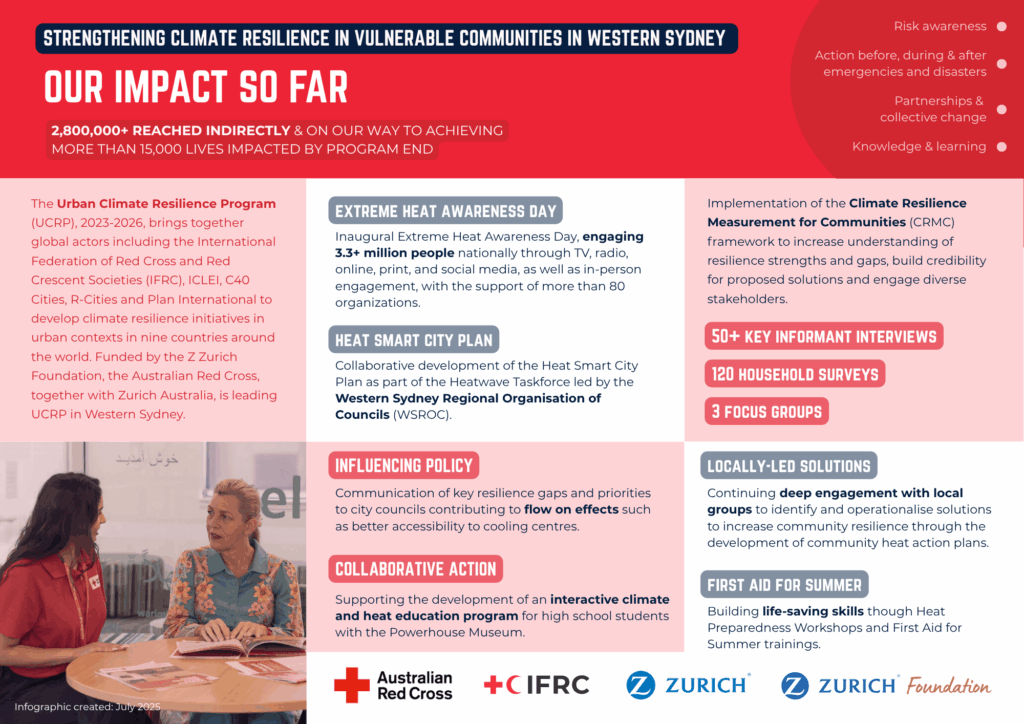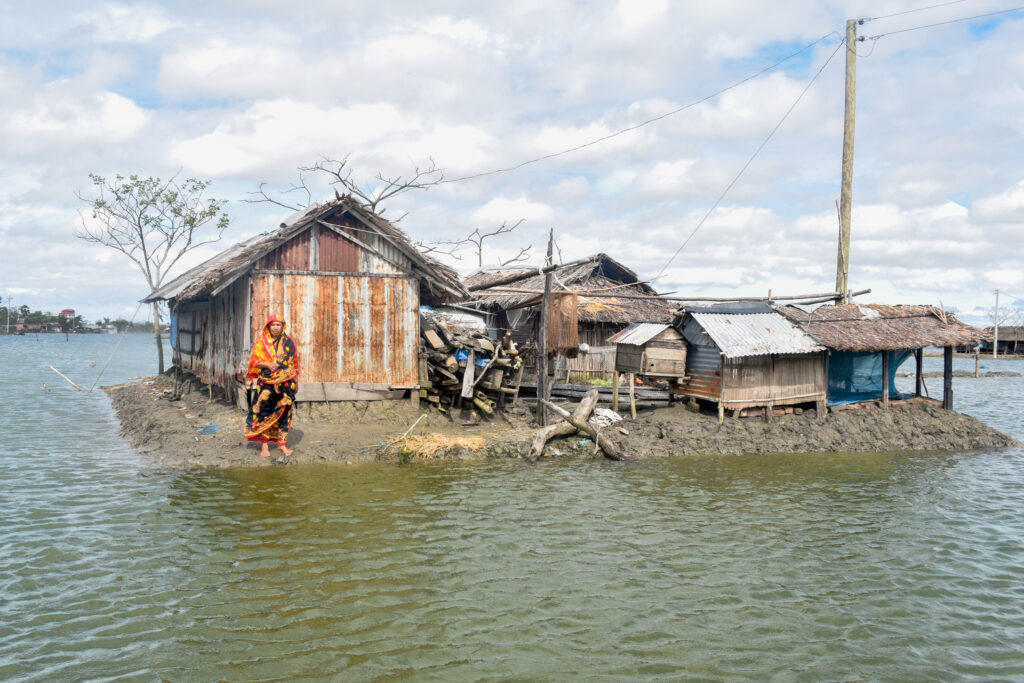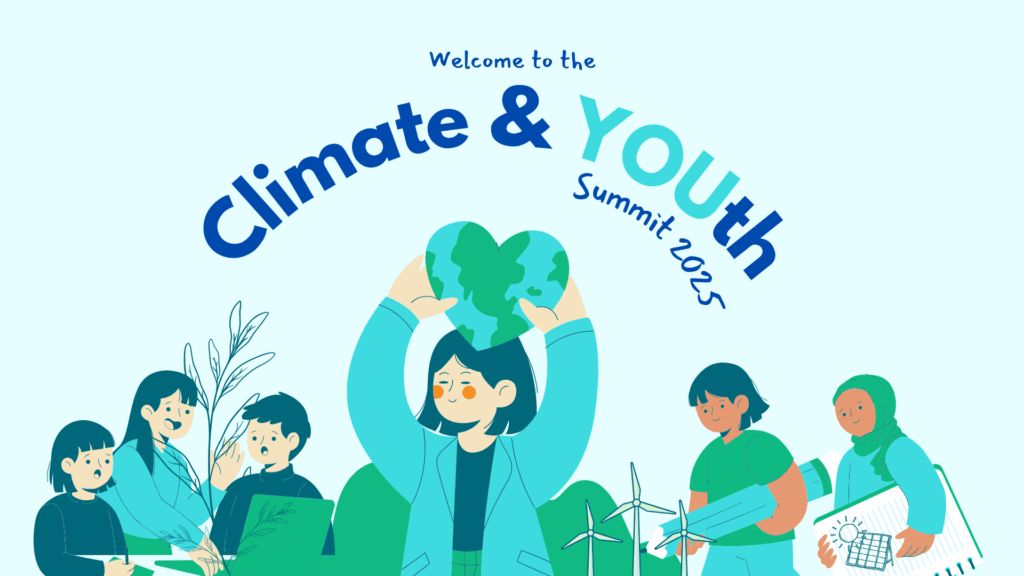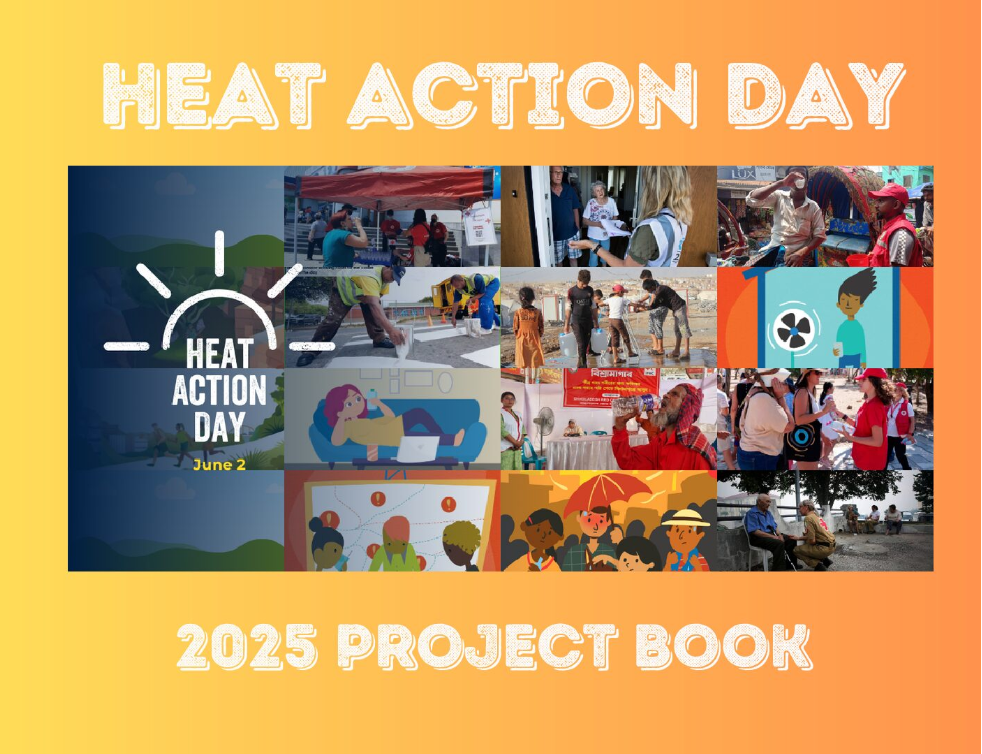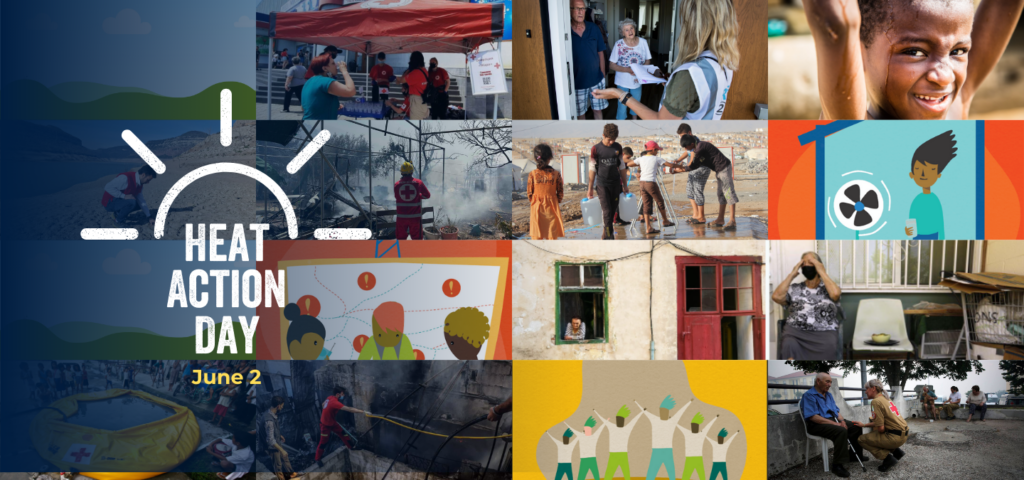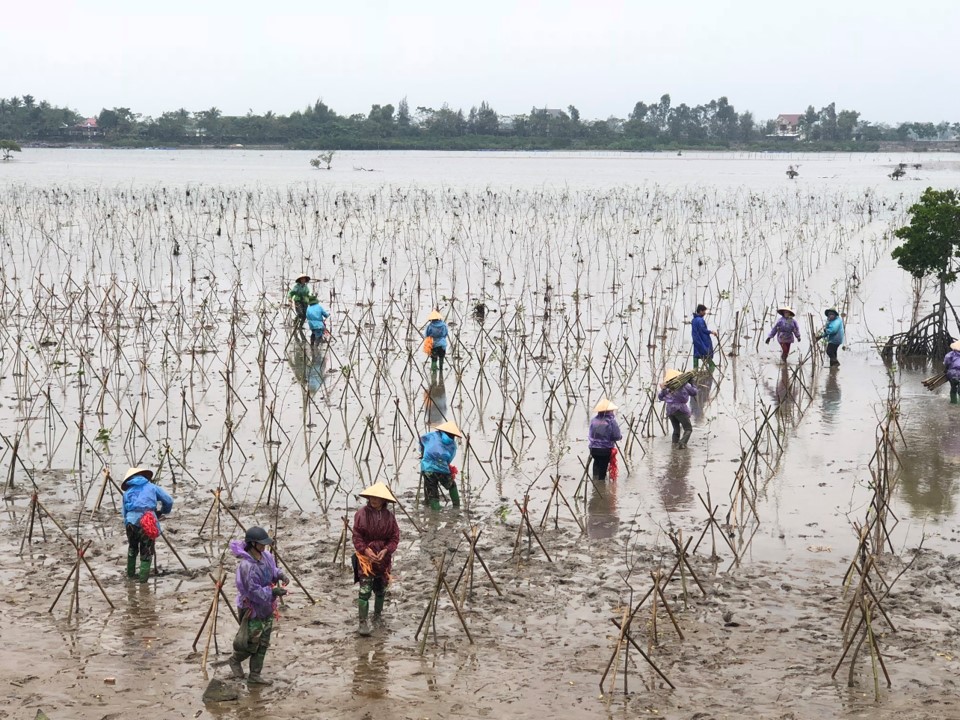Enhancing Community Resilience to Climate Risks in Madrid and Valencia
Since 2023, Spanish Red Cross has led the Urban Climate Resilience Program (UCRP) in Madrid and Valencia, working with communities most affected by extreme heat and floods. As extreme weather grows more frequent and severe, the program supports people and cities to prepare, adapt, and thrive. This infographic highlights key achievements to date, spanning both […]
Enhancing Community Resilience to Climate Risks in Madrid and Valencia Read More »

